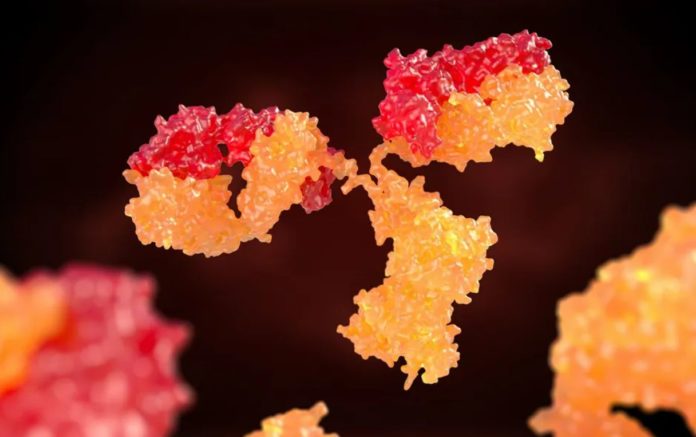Antigen and antibody are terms relating to the immune system that are commonly used in medicine. This is due to the fact that the antibody is a part of the body’s defense mechanisms and circulates in the bloodstream, but the antigen is a component of an infectious agent (a particular molecule), such as a virus, bacterium, or fungus.
When a virus, such as the SARS-CoV-2 coronavirus, infects the body, the immune system recognizes the intruder and begins to generate particular antibodies against it. To operate, the defenses must bind to the infectious pathogen, which is accomplished via the antigen — a “simple” target because to its high specificity. It is the key-lock mechanism that can be used to disable intruders.
mRNA (messenger RNA) vaccines, for example, target specific antigens to elicit an immune response. For example, Pfizer’s vaccine against the covid-19 virus’s S protein ( Spike ) immunizes against the virus. Other technologies, such as the inactivated virus used by CoronaVac, can utilise the full infectious agent.
What is antigen? And antibody?
Antibody is a protein produced by the defense system of the host cell. The activity of a certain white blood cell (leukocyte), the B cell, is required for its creation. There is a hypervariable area at the tip of the antibody that permits the body to manufacture different types of antibodies to respond to diverse antigens that can assault the body.
According to the National Human Genome Research Institute, “An antibody is a protein component of the immune system that circulates in the blood, recognizes foreign substances like bacteria and viruses, and neutralizes them. After exposure to a foreign substance, called an antigen, antibodies continue to circulate in the blood, providing protection against future exposures to that antigen.”
In extreme situations, the immune system might even manufacture antibodies against itself, resulting in autoimmune illnesses.
Can you study antibodies?
In science, the field that is intended to study antibodies in the human organism is serology. Through serology tests, health professionals assess whether, in an individual’s blood sample, there are specific antibodies against the disease. Depending on the type of protein found, it is possible to assume that the body is infected or has had a recent infection, caused by that infectious agent.
Now, if the test does not identify the presence of antibodies, this is an indication that a person has not had an infection in recent times. It is even relatively normal not to have antibodies in the blood, as their production drops after a period and the body’s defenses focus on other mechanisms of the immune system.
It is worth explaining that, after exposure to an antigen, antibodies continue to circulate in the blood and do not “magically” disappear. This happens in cases where the infection has been successfully cleared, but it is normal and expected that these rates will drop over time. Therefore, reinfections do happen, but tend to be less serious for some diseases.
When to take a serological test?
Serological testing can be used to diagnose different diseases such as:
- Human Brucellosis: caused by bacteria;
- Amebiasis: caused by a parasite;
- Measles: caused by a virus;
- Rubella: caused by a virus;
- HIV: caused by a virus;
- Syphilis: caused by a bacterium;
- Various fungal infections.
And the covid-19?
In general, the serological test should not be used for the diagnosis of covid-19. That’s because antibody production does not start at the same time as infection, which can lead to a late diagnosis of the coronavirus. It is also possible for the patient to test “positive” even after the infection has been controlled, as the antibodies remain in the blood for a period.
IgM and IgG antibodies against SARS-CoV-2 are found on average from 14 days after the onset of symptoms. After that, IgM remains positive for about two to three months, and IgG for up to eight months after infection. In other words, they can cause confusion as you seek to find out if you are (or not) contaminated.
In addition, the choice of a serological test with low analytical specificity (ability to detect only antibodies against SARS-CoV-2 antigens) can favor false-positive results, because it can identify the presence of antibodies against other similar pathogens to SARS-CoV-2.
